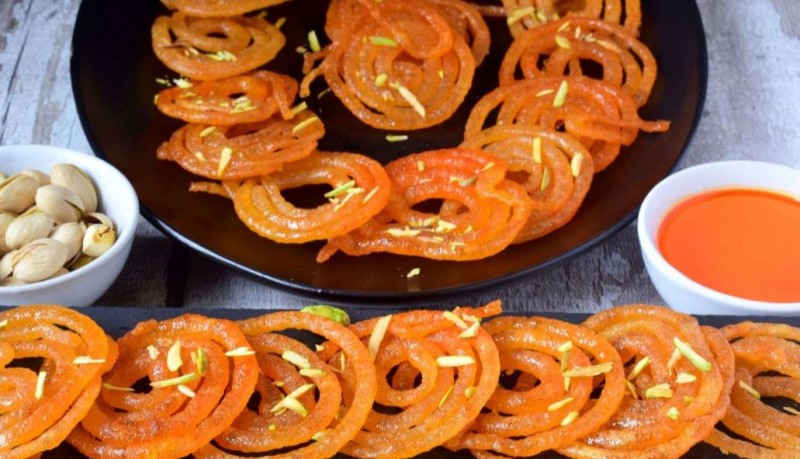
Jalebi, the sweet confection that has become synonymous with Indian festivals, celebrations, and everyday indulgence, has a history as intricate and delightful as its own spiral shape. While it is widely regarded as an integral part of Indian cuisine, its origin story might just surprise you. Let's embark on a journey through time and taste to uncover the truth behind the origin of Jalebi.
The history of frying dough in sugar syrup, a fundamental element of Jalebi, can be traced back to ancient times in the Middle East and Persia. In these regions, a sweet delicacy known as "zoolbia" or "zolobiyah" was created by deep-frying dough soaked in honey. This early version of what we now call Jalebi was already capturing hearts with its delectable sweetness.
The story of Jalebi in India begins with its possible introduction during the Mughal era. The Mughals, known for their culinary prowess, might have brought the concept of frying dough in sugar syrup to the Indian subcontinent through their extensive trade routes and cultural exchanges. This marks the initial connection between Jalebi and India.
One fascinating aspect of Jalebi's journey in India is how it has evolved differently across various regions. In South India, it goes by the name "Jangiri," and it has its unique regional twist. In contrast, North India still calls it "Jalebi." These regional variations in taste and presentation showcase the versatility of this beloved dessert.
Creating Jalebi is an art that combines simplicity with indulgence. The batter, crafted from ingredients like flour, yogurt, and sometimes gram flour, is piped into hot oil in a mesmerizing spiral shape. Once fried to a perfect golden hue, it is then submerged in sugar syrup. This process results in the iconic texture that makes Jalebi so irresistible - crispy on the outside and syrupy sweet on the inside.
The question of whether Jalebi is genuinely Indian or an adopted treasure is one that often sparks lively debates among food enthusiasts. Let's explore the factors that contribute to its identity.
Jalebi's journey mirrors India's history of cultural adaptation and integration. While its roots may stretch beyond India's borders, its evolution and seamless integration into Indian cuisine are undeniable. It has not only found a place but also thrived, evolving into a quintessential Indian sweet.
Over centuries, Jalebi has become an integral part of Indian traditions and celebrations. Be it Diwali, weddings, or a simple evening snack, this sweet delight has firmly established itself in the hearts of Indians. Its enduring popularity is a testament to its Indian identity.
Jalebi's appeal extends far beyond India's boundaries. It has garnered admirers worldwide, and you can find it in Indian restaurants and sweet shops across the globe. Its ability to transcend cultural boundaries is a testament to its universal allure.
In the enchanting world of desserts, the origin story of Jalebi is a testament to the rich tapestry of culinary history. While its roots may be traced back to ancient Persia and the Middle East, its heart and soul have unquestionably taken root in India. Jalebi is more than just a sweet; it's a cultural icon that signifies the sweet harmony of diverse influences.
The next time you relish a warm, syrupy Jalebi, savor not only its taste but also its journey from distant lands to the heart of India. It's a reminder that food is a bridge that connects cultures and brings people together in a delightful, flavorful experience.
Mamata Banerjee Ventures to Spain for High-Stakes Business Summit
Mughals brought these 6 food items with them, you also eat them by licking your fingers!
Suffering from Migraines? Try Rabri-Jalebi Every Morning for Relief!